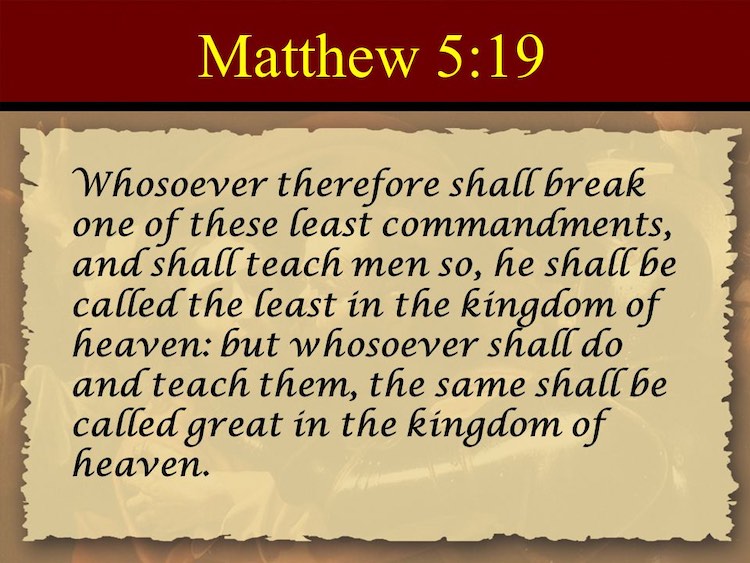Just three weeks ago on April 9, 2019, the citizens of Israel voted to elect new representatives for the Israeli government. The weeks and months leading up to the elections were filled with media interviews of the different candidates and representatives from the 40 political parties all striving to win the votes of the people. Politics is complicated and politicians can often make it more complicated.
Politicians are constantly making promises, most of which they don’t keep. Politicians will say almost anything in order to win a majority of votes. One of the ways in which politicians seek to rise above their opponents is to speak about the faults of the others, whether real or perceived. “Political mud slinging” (saying bad things against another for political gain) is the path which many politicians choose in order to make themselves appear to be the better choice. This method of tearing down one’s political opponent in order to put oneself in a better light seems to be universal in the world today. Unfortunately, it is also common outside of politics.
In everyday life it is easy to speak words against others to put them down for one reason or the other. We should always seek to choose our words well because there is power in the words that we speak. In the book of Proverbs, we read the following truth: “Death and life are in the power of the tongue, and those who love it will eat its fruit.” (Proverbs 18:21) We can speak words that bring death or words that bring life. We need to choose our words well and be careful to not speak words that will bring harm to others. There is a good reminder of this truth regarding the words we speak in this week’s Torah Portion.

A Call To Holiness
There are only two chapters in this week’s Scripture reading, Leviticus chapters nineteen and twenty, and these two chapters are filled with precious nuggets of truth and guidelines for how to live a holy life. This week’s reading begins with the following two verses:
Then the LORD spoke to Moses, saying: “Speak to all the congregation of the sons of Israel and say to them, ‘You shall be holy, for I the LORD your God am holy…’” – Lev. 19:1-2
God desired and demanded that His people be like Him and represent Him well on this earth. God called the Israelites to be a holy people and then provided many details in how they were to live this out in the verses of the two chapters in this week’s study.
One of the many ways in which God called His people to be holy was in the words that they speak to each other. We read the following command in Leviticus chapter nineteen:
You shall not go about as a slanderer among your people,… – Lev. 19:16a
This one short phrase is easily read but not so easily lived out. God commanded His people to not slander others. What does it mean to slander others?
Do Not Be A Slanderer
This phrase from Leviticus 19:16, as quoted above, is only four words in the Hebrew language: לא תלך רכיל בעמיך – Lo Telek Rachil Be’Amecha and is literally translated as “Do not go about as a slanderer among your people,” quite similar to the translation above.
The Hebrew word for a slanderer in this verse is only used six times in the Old Testament (Lev. 19:16. Jer. 6:28, 9:4. Ezek. 22:9. Prov. 11:13, 20:19). It is the word רכיל – Ra’Chil and it is used as a noun to speak of slander, a slanderer, a tale bearer, or an informer. The roots of this word and how it developed through the centuries in the ancient world is quite interesting and adds depth to its meaning.
The origin of the Hebrew word רכיל – Ra’Chil (slanderer) appears to be linked to the language of the marketplace. In one Jewish commentary which I perused, I found the four following suggested meanings for the root of this word: “soft, to travel by foot, merchandise, and a peddler.” In further explaining how these concepts fit together, the commentator wrote the following summary ignoring the first meaning which didn’t seem to have much credence:
These last three possibilities see the biblical word as a metaphor for the carrying of tales (merchandise) from place to place. Ehrlich… explains that in ancient times the peddler told tales to prospective buyers to attract their attention and gain time to make a sale; the practice proliferated until “peddler” and “talebearer” became synonymous. – Israel Drain & Stanley M. Wagner. Targum Onkelos, Leviticus. Gefen Publishing. 2011. p.151
In this explanation of how we get this Hebrew word for a slanderer, we see how it was used to describe someone who would go about telling made-up stories (tales) for the sake of selling something. Therefore a slanderer is someone who tells tales about others in order to achieve his or her own goals.
The Deceptive Salesman
We see further evidence of the root of the Hebrew word רכיל – Ra’Chil in connection to a salesman in the marketplace in the book of Ezekiel:
They traded with you in choice garments, in clothes of blue and embroidered work, and in carpets of many colors and tightly wound cords, which were among your merchandise. – Ezekiel 27:24
The word for “merchandise” in the above verse is the Hebrew word מרכולת – Markolet which means market place or place of trade, and comes from the same Hebrew root רכל – Ra’chal. (Note that this word is not in anyway connected to the Hebrew name Rachel, which is spelled רחל – Ra’chel and means lamb.)
The Hebrew word for slanderer (רכיל – Ra’Chil) clearly has negative connotations of one who makes up stories for the sake of promoting and selling one’s own agenda. Someone who slanders another person is not concerned with the truth or the welfare or the other individual, but rather only in saying whatever is necessary for the sake of achieving his or her end goal. God’s command to the Israelites was clear: “You shall not go about as a slanderer among your people,…” (Lev. 19:16a) There is no place amongst the people of God for making up false stories about someone else for the sake of selfishly achieving one’s own end. God said, “Don’t be a slanderer among your people!”
It is interesting that the LORD did not just say, “Don’t be a slanderer!” but also specified the context of this warning “… among your people!” There is no further explanation regarding why God specified this but I think we can assume the obvious. We generally do not slander people whom we do not know. Unfortunately, it is usually the people closest to us to whom we do the most harm with our words and also to the people in our community. God knows this and He warns us, “Don’t be a slanderer among your people!”
Speak Truth To Your Neighbor
The command of God to be a holy people and to guard against slander in any form is clearly carried over in the teachings of the New Testament:
Therefore, laying aside falsehood, speak truth each one of you with his neighbor, for we are members of one another. Be angry, and yet do not sin; do not let the sun go down on your anger, and do not give the devil an opportunity. He who steals must steal no longer; but rather he must labor, performing with his own hands what is good, so that he will have something to share with one who has need. Let no unwholesome word proceed from your mouth, but only such a word as is good for edification according to the need of the moment, so that it will give grace to those who hear. Do not grieve the Holy Spirit of God, by whom you were sealed for the day of redemption. Let all bitterness and wrath and anger and clamor and slander be put away from you, along with all malice. Be kind to one another, tender-hearted, forgiving each other, just as God in Christ also has forgiven you. – Eph. 4:25-32
As followers of Yeshua the Messiah, we are sternly admonished to speak truth to one another and to put away all falsehood and slander. We need to speak honestly but always speak for the sake of building others up. We have a high calling and need to do our best in the power of the Holy Spirit to speak words of life to one another.
The beginning of the verses quoted above are taken from a quote in the book of the prophet Zechariah:
These are the things which you should do: speak the truth to one another; judge with truth and judgment for peace in your gates. Also let none of you devise evil in your heart against another, and do not love perjury; for all these are what I hate, declares the LORD. – Zech. 8:16-17
God admonishes us to speak the truth to one another and be careful in our judgment. We also read in these verses that God hates when we speak evil of one another and devise evil in our hearts against others. Let us pursue the things which God loves and reject the things which God hates.

The Least Of The Commandments
We would be wise to heed the warning in this week’s Torah Portion reading: “Do not go about as a slanderer among your people,…” (Lev. 19:16a) which are only four simple words in the Hebrew language. Although this commandment may be among the least of the commandments according to the number of words, it is great in God’s sight. Our words have the power of life and death. Let us be wise and speak words of life without slandering others!
Shabbat Shalom!
If you enjoyed reading this article, share it today with friends! We also invite you to sign up for our weekly Torah Portion commentary on the sidebar to the right.
Help keep our weekly commentaries free and available to all. Click here to donate today:
Torah Portion: Lev. 19:1 – Lev. 20:27
Haftara: 1 Samuel 20:18-42
Return to Torah Portion Homepage
Copyright Jewels of Judaism. All rights reserved 2019


